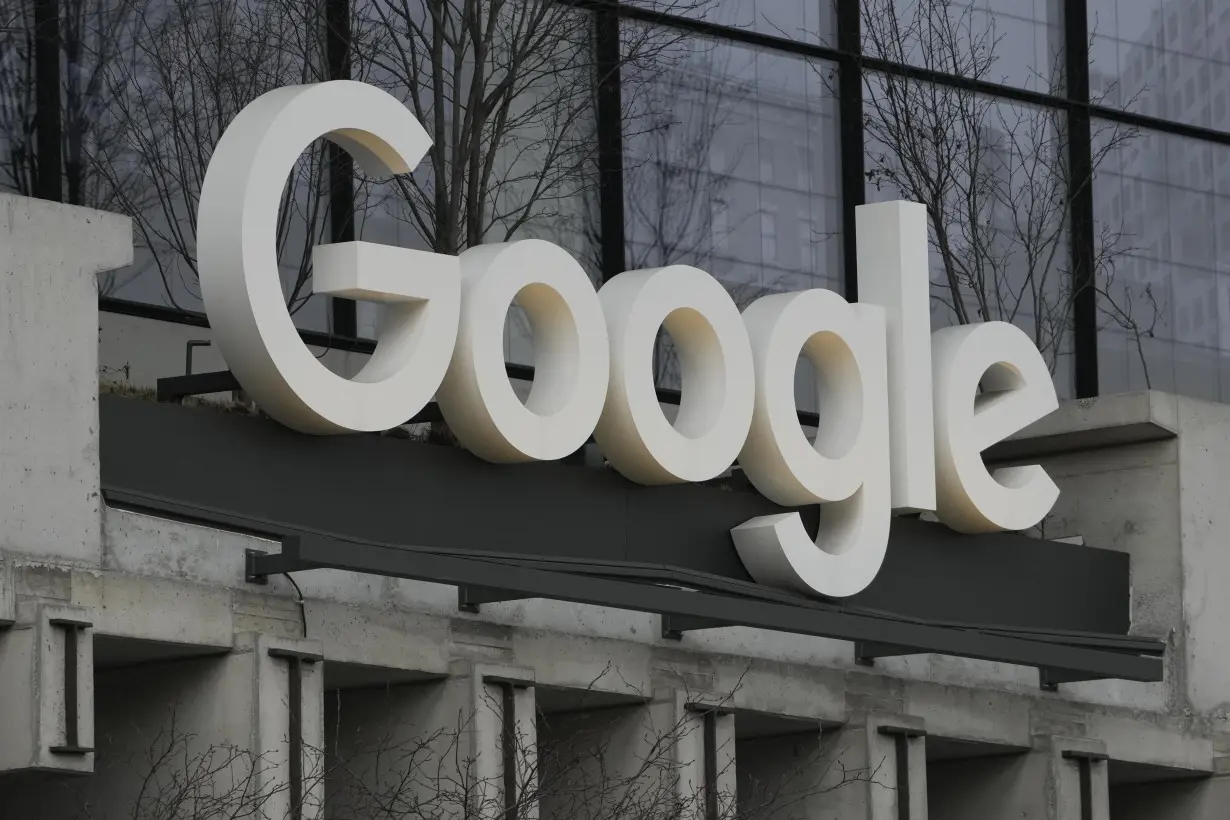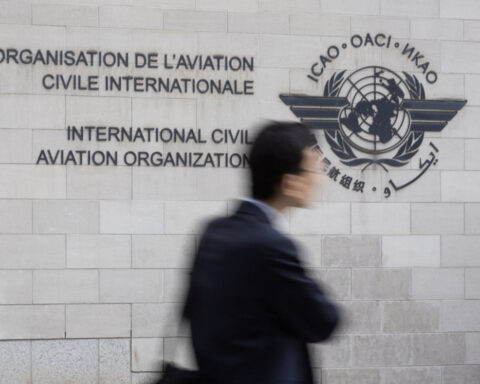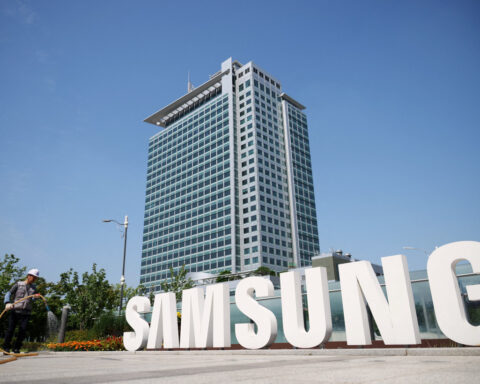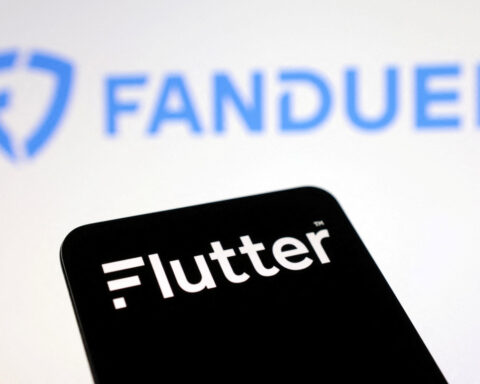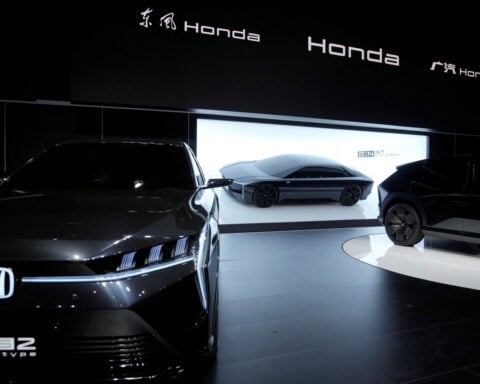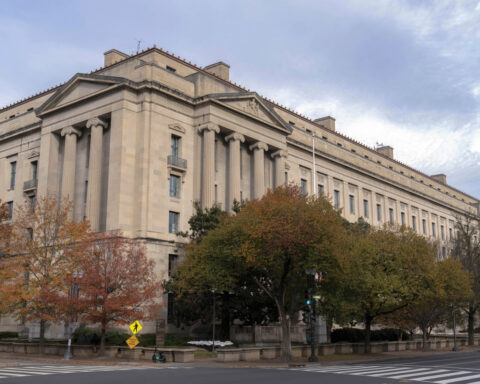ALEXANDRIA, Va. (AP) — Federal regulators who say Google holds an illegal monopoly over the technology that matches online advertisers to publishers are vastly underestimating the competition the tech giant faces, an expert hired by Google testified Thursday.
Mark Israel, an economist who prepared an expert report on Google's behalf, said the government's claims that Google holds a monopoly over advertising technology are improperly focused on a narrow market the government defines as “open web display advertising,” essentially the rectangular ads that appear on the top and along the right hand side of a web page when a consumer browses the web on a desktop computer.
But the government's case fails to account for a variety of competition that occurs beyond those rectangular boxes, Israel said. In the real world, advertisers have dramatically shifted where they spend money to social media companies like Facebook and TikTok, and online retailers like Amazon.
When you account for all online display advertising, not just the narrow segment defined by the government's case, Google gets just 10% of the U.S. market share as of 2022, he said. That's down from roughly 15% a decade ago.
In addition, advertisers have moved away from placing their ads on the screens of desktop and laptop computers where Google is alleged to control the market, with money migrating to ads placed on apps and mobile device screens. Israel cited marketing data showing display ad spending on desktop and laptop devices has decreased from 71% in 2013 to 17% in 2022.
The government's case “seems to miss where the competition is today,” Israel said.
His testimony comes as Google wraps up its defense in the third week of an antitrust trial that began earlier this month in Alexandria, Virginia. U.S. District Judge Leonie Brinkema has said she expects the government will put on a short rebuttal case Friday. Then the trial will go on hiatus, with both sides submitting proposed findings of fact in November and returning to court to make closing arguments in December. She said she expects to make a ruling by the end of the year.
The government's case alleges Google has built and maintained an illegal monopoly that restricts choices and inflates costs for online publishers and advertisers. Its control of the market has allowed Google to keep 36 cents on the dollar for every ad bought and sold through its ad tech stack, the government claims.
The government says Google controls advertising tech at every step of the process, including the predominant technology used by publishers to sell their ad space, the predominant technology used by advertisers looking to purchase ad space, and the ad exchanges in the middle that conduct auctions in a matter of milliseconds to match advertiser to publisher.
The government's case contends that Google illegally ties those markets together, forcing publishers to use Google's technology if they want access to Google's large cache of advertisers.
The government, using more narrow market definitions than those used by Israel, has claimed that Google controls 91% of the market for publisher ad servers and 87% of the market for advertising ad networks.
Google says the government's case also fails to account for the billions the company has invested to ensure its products, working together, generate better value for publishers and advertisers by matching the right advertisers to the right consumers.
Israel cited data showing publishers working with Google are generating more revenue for each bit of ad space they make available, while advertisers are paying less for each click their ads generate.
That only occurs, Israel said, because Google's technology is continually improving the quality of the ads by matching advertisers to consumers based on their interests and purchase history.
Israel also disputed the government's claims that Google gets 36 cents on the dollar for the ad sales it facilitates. He said data shows that percentage has dropped to 31% or 32% in recent years. More importantly, he said, competitors have even higher take rates, with an industry average of 42 cents on the dollar.
The Virginia trial is separate from another case brought by the government alleging that Google's ubiquitous search engine constitutes an illegal monopoly. In that case, a judge in the district of Columbia ruled in favor of the government and declared the search engine a monopoly, but no decision has yet been made on any potential remedies. The government is scheduled to offer suggestions of proposed remedies next month. those could include restricting Google from paying tech companies to lock in Google as the default search engine for gadgets like cellphones, or even seeking to force google to sell off parts of its business.

 Wild weather halted ferries between New Zealand's main islands again. Why isn't there a tunnel?
Wild weather halted ferries between New Zealand's main islands again. Why isn't there a tunnel?
 Justin Verlander and the Giants agree to a $15 million, 1-year contract, AP source says
Justin Verlander and the Giants agree to a $15 million, 1-year contract, AP source says
 Disgraced former US Rep. George Santos seeks to delay fraud sentencing to make more podcast episodes
Disgraced former US Rep. George Santos seeks to delay fraud sentencing to make more podcast episodes
 Rolls-Royce to invest $376 million in UK plant to focus on bespoke cars
Rolls-Royce to invest $376 million in UK plant to focus on bespoke cars
 UN aviation agency probe involves alleged release of recruitment data
UN aviation agency probe involves alleged release of recruitment data
 Former CEO of Moviepass’ parent company pleads guilty to securities fraud, conspiracy
Former CEO of Moviepass’ parent company pleads guilty to securities fraud, conspiracy
